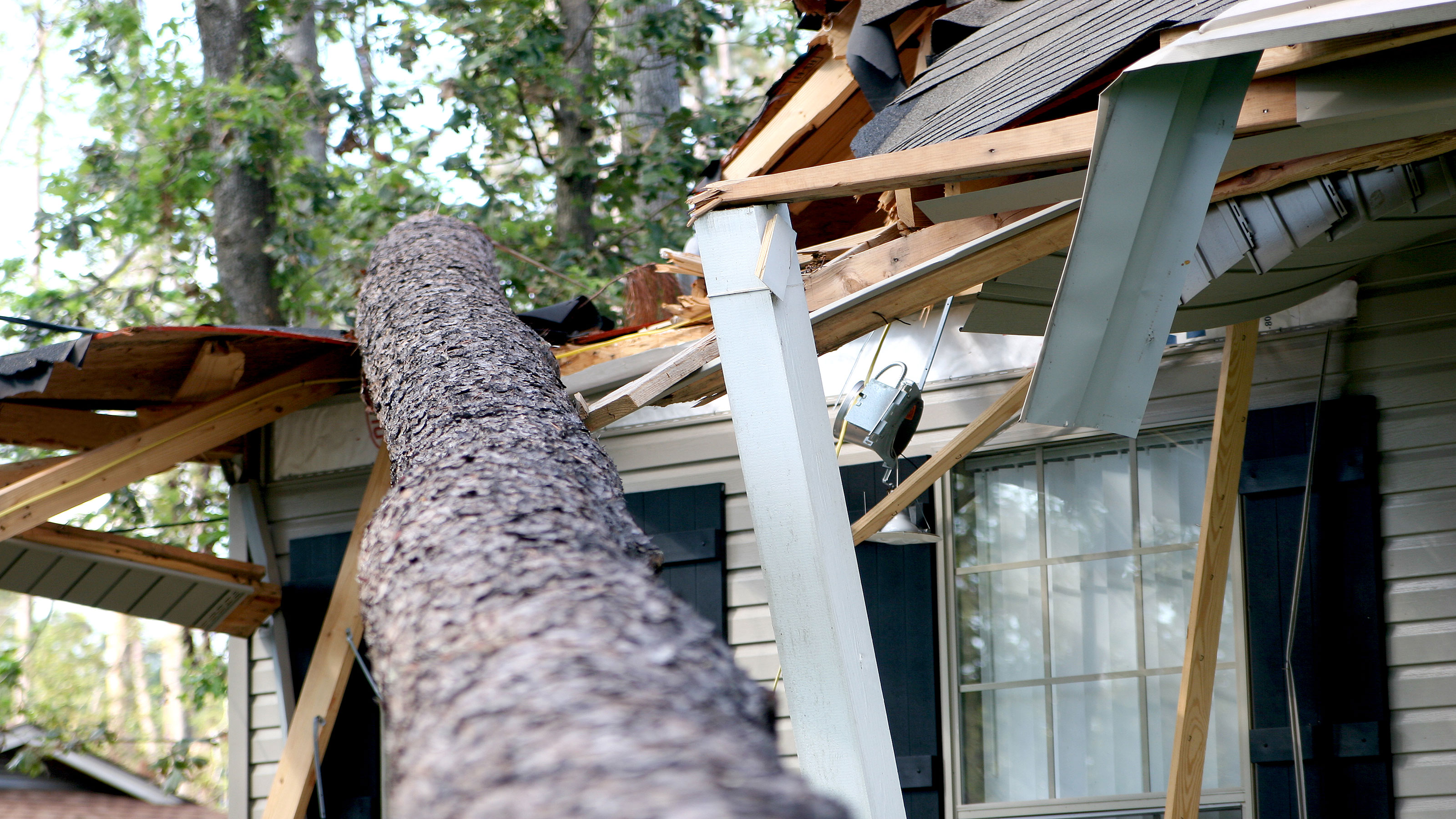IRS Extends Tax Deadlines for Alabama, Kentucky and Tennessee Storm Victims
Following FEMA's recent disaster declarations for severe storms in Alabama, Kentucky and Tennessee, victims of the storms in those states get more time to file and pay taxes.


Profit and prosper with the best of Kiplinger's advice on investing, taxes, retirement, personal finance and much more. Delivered daily. Enter your email in the box and click Sign Me Up.
You are now subscribed
Your newsletter sign-up was successful
Want to add more newsletters?
Victims of severe storms earlier this year in Alabama, Kentucky and Tennessee will have more time to file their 2020 federal income tax return. For Kentucky storm victims, the due date is now June 30, 2021; for Alabama and Tennessee victims, it's August 2, 2021. The announcements from the IRS about the extra time follow disaster area declarations from the Federal Emergency Management Agency (FEMA) for those three states. Taxpayers in other states impacted by the storms that receive similar FEMA disaster declarations will automatically receive the same filing and payment relief.
In Kentucky, people affected by the February 27 severe storms, flooding, landslides, and mudslides who reside or have a business in Anderson, Bell, Boyd, Breathitt, Calloway, Carter, Casey, Clark, Clay, Cumberland, Edmonson, Elliott, Estill, Fayette, Floyd, Franklin, Graves, Greenup, Harlan, Jackson, Jessamine, Johnson, Knott, Knox, Lawrence, Laurel, Lee, Leslie, Letcher, Lincoln, Madison, Magoffin, Marion, Martin, Mason, Menifee, Morgan, Ohio, Owsley, Perry, Pike, Powell, Pulaski, Rockcastle, Union, Warren, Whitley, Wolfe, and Woodford Counties qualify for tax relief.
In Alabama, the tax relief is available for people impacted by the March 25 severe storms, straight-line winds, and tornadoes who reside or have a business in Bibb, Calhoun, Clay, Hale, Jefferson, Perry, Randolph, and Shelby Counties.
From just $107.88 $24.99 for Kiplinger Personal Finance
Become a smarter, better informed investor. Subscribe from just $107.88 $24.99, plus get up to 4 Special Issues

Sign up for Kiplinger’s Free Newsletters
Profit and prosper with the best of expert advice on investing, taxes, retirement, personal finance and more - straight to your e-mail.
Profit and prosper with the best of expert advice - straight to your e-mail.
In Tennessee, the additional time is allowed for victims of severe storms, straight-line winds, tornadoes, and flooding on March 25 in Campbell, Cannon, Cheatham, Claiborne, Clay, Davidson, Decatur, Fentress, Grainger, Hardeman, Henderson, Hickman, Jackson, Madison, Maury, McNairy, Moore, Overton, Scott, Smith, Wayne, Williamson, and Wilson Counties.
Various federal tax filing and payment due dates for Kentucky individuals and businesses between February 27 and June 29 will be shifted to June 30. Likewise, for Alabama and Tennessee individuals and businesses, federal deadlines between March 25 and August 1 will be moved to August 2. In addition to the May 17 personal income tax filing deadline, this includes:
- 2020 IRA contributions originally due on May 17;
- Quarterly estimated income tax payments normally due on April 15 and June 15;
- Quarterly payroll and excise tax returns ordinarily due on April 30; and
- 2020 returns for tax-exempt organizations typically due on May 17.
In Kentucky, penalties on payroll and excise tax deposits due from February 27 to March 14 will also be waived if the deposits were made by March 15. In Alabama and Tennessee, the same applies for deposits due from March 25 to April 8 they're made by April 9.
You don't have to contact the IRS to get this relief. However, if you receive a late filing or late payment penalty notice from the IRS that has an original or extended filing, payment or deposit due date falling within the postponement period, you should call the number on the notice to have the penalty abated.
In addition, the IRS will work with any taxpayer who lives elsewhere, but whose records necessary to meet a deadline occurring during the postponement period are in Alabama, Kentucky or Tennessee. Taxpayers qualifying for relief who live in another state need to contact the IRS at 866-562-5227. This also includes workers assisting the relief activities who are affiliated with a recognized government or philanthropic organization and anyone visiting the covered disaster area who was killed or injured because of the storm.
People and businesses in a federally declared disaster area who suffered uninsured or unreimbursed disaster-related losses can choose to claim them on either the return for the year the loss occurred (in this instance, the 2021 return normally filed next year), or the return for the prior year. This means that taxpayers can, if they choose, claim these losses on the 2020 return they are filling out this tax season. Be sure to write the FEMA declaration number (4595-DR for Alabama, 4595-DR for Kentucky, 4601-DR for Tennessee) on any return claiming a loss. It's also a good idea for affected taxpayers claiming the disaster loss on a 2020 return to put the Disaster Designation (e.g., "Alabama – Severe Storms, Straight-line Winds, and Tornadoes" or "Kentucky – Severe Storms, Flooding, Landslides, and Mudslides" or "Tennessee Severe Storms, Straight-line Winds, Tornadoes, and Flooding") in bold letters at the top of the form. See IRS Publication 547 for details.
[NOTE: Similar tax relief is available for victims of winter storms in Texas, Oklahoma and Louisiana.]
Profit and prosper with the best of Kiplinger's advice on investing, taxes, retirement, personal finance and much more. Delivered daily. Enter your email in the box and click Sign Me Up.
Rocky Mengle was a Senior Tax Editor for Kiplinger from October 2018 to January 2023 with more than 20 years of experience covering federal and state tax developments. Before coming to Kiplinger, Rocky worked for Wolters Kluwer Tax & Accounting, and Kleinrock Publishing, where he provided breaking news and guidance for CPAs, tax attorneys, and other tax professionals. He has also been quoted as an expert by USA Today, Forbes, U.S. News & World Report, Reuters, Accounting Today, and other media outlets. Rocky holds a law degree from the University of Connecticut and a B.A. in History from Salisbury University.
-
 New Ways to Keep Online Accounts Safe
New Ways to Keep Online Accounts SafeAs cybercrime evolves, the strategies you use to protect yourself need to evolve, too.
-
 The Merger Market is Heating Up. Here's How to Cash In
The Merger Market is Heating Up. Here's How to Cash InInvesting in takeover deals can be a low-volatility way to diversify your portfolio.
-
 Can Your Car Insurance Add Strangers to Your Policy? A Florida Class Action Lawsuit Could Decide
Can Your Car Insurance Add Strangers to Your Policy? A Florida Class Action Lawsuit Could DecideA Florida driver says GEICO added complete strangers to her car insurance policy and jacked up premiums as a result.
-
 3 Smart Ways to Spend Your Retirement Tax Refund
3 Smart Ways to Spend Your Retirement Tax RefundRetirement Taxes With the new "senior bonus" hitting bank accounts this tax season, your retirement refund may be higher than usual. Here's how to reinvest those funds for a financially efficient 2026.
-
 5 Retirement Tax Traps to Watch in 2026
5 Retirement Tax Traps to Watch in 2026Retirement Even in retirement, some income sources can unexpectedly raise your federal and state tax bills. Here's how to avoid costly surprises.
-
 First the Penny, Now the Nickel? The New Math Behind Your Sales Tax and Total
First the Penny, Now the Nickel? The New Math Behind Your Sales Tax and TotalRounding Tax A new era of "Swedish rounding" hits U.S. registers soon. Learn why the nickel might be on the chopping block, and how to save money by choosing the right way to pay.
-
 Over 65? Here's What the New $6K Senior Tax Deduction Means for Medicare IRMAA
Over 65? Here's What the New $6K Senior Tax Deduction Means for Medicare IRMAATax Breaks A new tax deduction for people over age 65 has some thinking about Medicare premiums and MAGI strategy.
-
 How to Open Your Kid's $1,000 Trump Account
How to Open Your Kid's $1,000 Trump AccountTax Breaks Filing income taxes in 2026? You won't want to miss Form 4547 to claim a $1,000 Trump Account for your child.
-
 In Arkansas and Illinois, Groceries Just Got Cheaper, But Not By Much
In Arkansas and Illinois, Groceries Just Got Cheaper, But Not By MuchFood Prices Arkansas and Illinois are the most recent states to repeal sales tax on groceries. Will it really help shoppers with their food bills?
-
 7 Bad Tax Habits to Kick Right Now
7 Bad Tax Habits to Kick Right NowTax Tips Ditch these seven common habits to sidestep IRS red flags for a smoother, faster 2026 income tax filing.
-
 New Bill Would Eliminate Taxes on Restored Social Security Benefits
New Bill Would Eliminate Taxes on Restored Social Security BenefitsSocial Security Taxes on Social Security benefits are stirring debate again, as recent changes could affect how some retirees file their returns this tax season.
